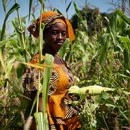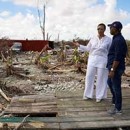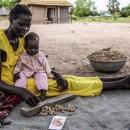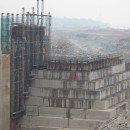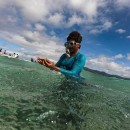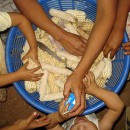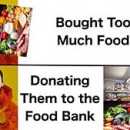Saturday, June 10, 2023
News and Views from the Global South
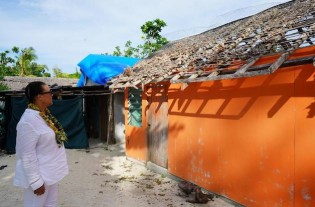
Climate Disasters Have Major Consequences for Informal Economies
In the Pacific Islands and many developing and emerging countries worldwide, the informal economy far outsizes the formal one, playing a vital role in the survival of urban and rural households and absorbing expanding working-age populations.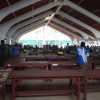
Food Shortages Deepen in Cyclone-Devastated Vanuatu
One month after the Pacific Island nation of Vanuatu was hit by two Category 4 cyclones within three days, food scarcity and prices are rising in the country following widespread devastation of the agriculture sector.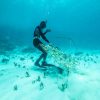
Pacific Islands: Climate Finance Action a Priority at COP27
Today, the window of opportunity for scaled-up global climate action to prevent disastrous global warming and build resilience in the most vulnerable nations is closing fast. And a major impediment to reducing emissions and accelerating climate adaptation is both lack of financial investment and major bureaucratic hurdles to accessing those funds that are available.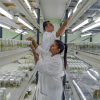
Pacific Community’s Agricultural Gene Bank Wins Global Award
Safeguarding plentiful, nutritious supplies of food for the present generation of Pacific Islanders and those who come in the future is a frontline goal in the wake of the pandemic and the continual threat of climate extremes to island farming. But the region, where 50 to 70 percent of people depend on agriculture and fisheries for sustenance and income, is now one step ahead in that objective. The region’s agricultural gene bank, established by the development organisation, Pacific Community (SPC), is now acclaimed as world-class and a leader in building future food supplies.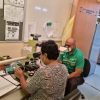
Pacific Community-Led Health Missions Arrive with Critical Support to Tonga and Kiribati Grappling with COVID-19 Surges
Before the pandemic emerged in 2020, health services in many Pacific Island countries were under-resourced, under-funded and under-staffed. Now following recent outbreaks of COVID-19, advancing the capacity and development of health and medical services in vulnerable nations, such as Tonga and Kiribati, is increasingly urgent.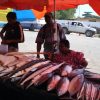
Pacific Islanders: Failure to Commit to 1.5 Degrees at COP27 will Imperil the World’s Oceans
Oceans play a pivotal role in regulating the world’s climate and maintaining the conditions for human life on earth. And they are a crucial source of sustenance and economic wellbeing in many developing countries, including small island developing states. But Pacific Islanders are deeply concerned about the fate of the oceans if world leaders fail to secure the pledges needed to limit the global temperature rise to 1.5 Degrees Celsius above pre-industrial levels at the next COP27 climate change summit in November.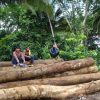
Fighting Corruption Essential to Reducing Inequality in Pacific Islands
Corruption continues to have a crippling effect on the lives of many people in southwest Pacific Island countries, exacerbating hardship and inequality and eroding human and national development.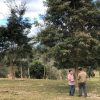
Fighting Loss of the Greater Mekong’s Prized Rosewood Forests
The famed Rosewood forests of the Greater Mekong region in Southeast Asia produce dark, richly grained timbers zealously sought after worldwide by manufacturers of luxury furniture, flooring and musical instruments, among other products. But their high value has also made them a major commodity in transnational organized crime.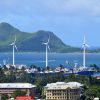
Mobilising the ‘Tools’ for Renewable Energy Investment in the Seychelles
Breaking the world’s reliance on fossil fuels and accelerating the global uptake of renewable energy will play a decisive role in diminishing the threat of global warming to the survival of life on earth, according to experts. But turning the vision into reality will demand unwavering political will and, critically, massive investment, which can no longer be shouldered solely by aid and development partners.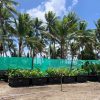
Atoll Nation of Tuvalu Adopts ‘Cubes’ to Step Up Nutritious Food Production
Tuvalu, a small atoll island nation in the Central Pacific Ocean, is one of few countries in the world to have so far evaded the pandemic. But, while it has achieved a milestone with no recorded cases of COVID-19, its population of about 11,931 continues to battle food uncertainties and poor nutrition. These challenges, present long before the pandemic emerged, have been exacerbated by lockdown restrictions and economic hardships during the past year and a half.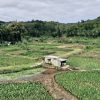
Cook Islands Entrepreneur Develops Hydroponics Greenhouse to Boost Local Food Production
Finding ways to be smarter producers of food was a priority in small island developing states (SIDS) before the outbreak of Covid-19. Now the ideas of farmers and entrepreneurs, such as Piri Maao in the Cook Islands, are being avidly sought by governments and development bodies, which are keen to drive resilience and recovery as the pandemic moves into its second year.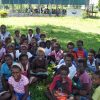
Pacific Community Warns of Threat to Education Retention in the Wake of COVID-19
Before the pandemic, many Pacific Island countries grappled with low numbers of students completing secondary education. Now experts in the region are concerned that the closure of schools to contain the spread of COVID-19, and the economic downturn, will lead to even more students dropping out of education early.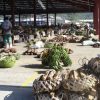
Solutions to Food Insecurity Top Agenda in Meeting of Small Island Developing States
The urgency of finding solutions to the most pressing development challenges of our times has increased as the Covid-19 pandemic threatens to reverse the global momentum in recent years toward achieving the Sustainable Development Goals (SDGs). And small island developing states (SIDS), with their physical remoteness, restricted land and resources and dependence on trade and tourism, are experiencing growing hardship caused by closed borders and plummeting economies.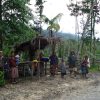
Papua New Guinea Battles COVID-19 and Health Workers’ Vaccine Scepticism
Papua New Guinea (PNG), like many other Pacific Island countries, successfully held COVID-19 at bay last year, aided by early shutting of national borders. However, by March this year, the pandemic was surging in the most populous Pacific Island nation, and by July, it had reported 17,282 cases of the virus and 175 fatalities.
– Mining giant Rio Tinto Face Environmental, Human Rights Complaint in Papua New Guinea –
On the occasion of World Environment Day, 5 June 2021, drawing from IPS’s bank of features and opinion editorials published this year, we are re-publishing one article a day, for the next two weeks. The original article was published on January 4 2021
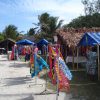
Pacific Islanders Turn to Local Economies to Drive Post-pandemic Recovery
While Pacific Island countries have, so far, been spared a catastrophic spread of COVID-19, their economies have been devastated by the effects of border closures, internal lockdowns and the demise of international tourism and trade. With the global pandemic far from over, Pacific Islanders are looking to their local and regional economies to drive resilience and recovery.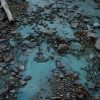
Mining giant Rio Tinto Face Environmental, Human Rights Complaint in Papua New Guinea
Local communities in the vicinity of the abandoned Panguna copper mine, have taken decisive action to hold the global mining multinational, Rio Tinto, accountable for alleged environmental and human rights violations during the mine’s operations between 1972 and 1989.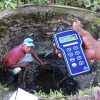
Bringing Clean Water On Tap To Rural Villages In Polynesian Island Nation Of Tuvalu
Rural communities on one of the nine islands that make up the Polynesian nation of Tuvalu are anticipating how life will change when they are connected to piped clean water for the first time.
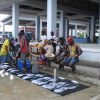
How the Pacific Islands are Balancing COVID-19 Survival Demands on Coastal Fisheries with Sustainable Management
Coastal fisheries in the Pacific Islands have become a food and livelihood lifeline to many people who have lost jobs, especially in urban centres and tourism, following COVID-19 lockdowns and border closures. Now governments and development organisations are trying to meet the crisis-driven survival needs of here and now, while also considering the long-term consequences on near shore marine resources and habitats.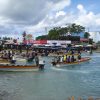
Papua New Guinea: Bougainville Elects Former Revolutionary Leader as President ahead of Tough Talks on Independence
Ishmael Toroama, a former revolutionary leader and fighter during the decade long civil war which engulfed the remote islands of Bougainville in Papua New Guinea (PNG) in the 1990s, has been elected the autonomous region’s new President ahead of high-level talks about its political future.
PNG Bougainville Prepares for Historic Vote on Nationhood
The people of Bougainville, an autonomous region in eastern Papua New Guinea (PNG), have aspired to self-government for more than a century. Now their longed-for opportunity to vote on independence will occur on Nov. 23. But, even with a clear majority in the vote count, the region’s future, which must be agreed and ratified by PNG, is far from certain.Next Page »

